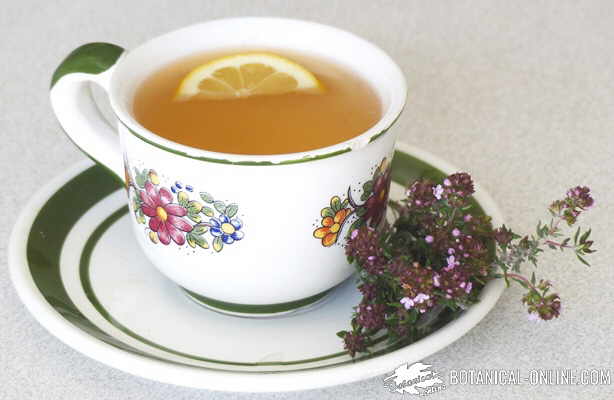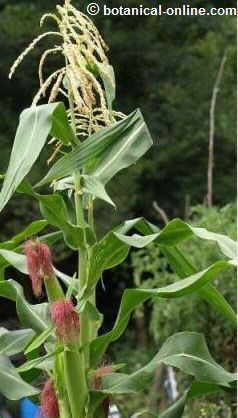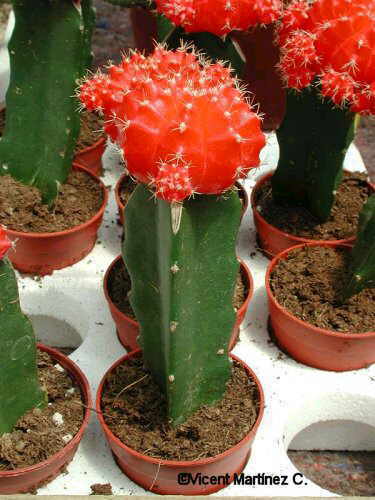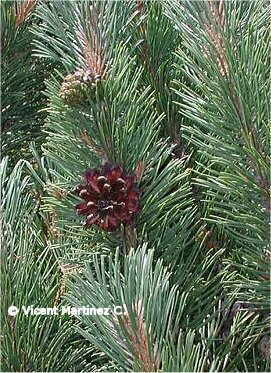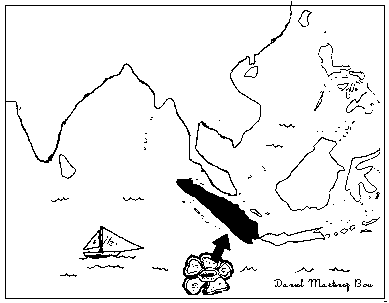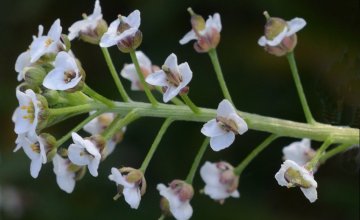Contents
What is chia used for?
Who is recommended to take chia seeds?
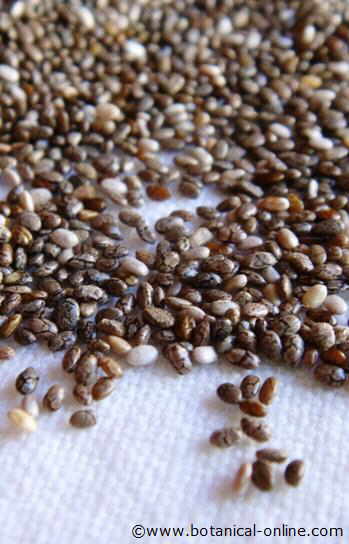
Photo of chia seeds
- For the whole population: In a society where poor eating habits have led to a shortage of Omega 3 and acidifying diets low in fiber, chia seems to be the cornerstone of all these problems. Along with a balanced diet, chia plant provides a great amount of Omega 3. It also contains calcium and a high Percentage of fiber in its composition.
- Pregnant women, to help control blood glucose, as an an extra intake of essential fatty acids Omega 3 and as a source of calcium, trace elements, vitamin B3 and folic acid.
- Athletes, especially endurance athletes. Studies show that the capacity of chia to regulate sugar levels improves slow absorption being very useful for a long sporting day, improving athletic performance.
- People with constipation: chia contains lots of fiber that regulate the bowel movement and is indicated for the prevention and treatment of constipation.
- Diabetes: Chia has a large amount of soluble fiber that, along with a proper diet for diabetes, can help regulate the absorption of sugars and, thereby, improve diabetic controls outcome.
- Cardiovascular disease: chia, along with flax and walnuts, is one of the foods with more omega3 content in the world. This essential fatty acid has a major role in the treatment of cardiovascular diseases such as hypertension.
- Menopause: chia helps regulate the absorption of sugars, helping to control weight loss. It is also a rich source of calcium and essential fatty acids.
- Obesity: besides the already mentioned benefits on cardiovascular disease and glycemic control, the fiber of chia brings satiety, needing less food intake.
Dose of chia: how much to take?
- Constipation: to benefit from the regulatory effects of this seed, it is recommended to take 2 to 4 teaspoons daily for 1 week, along with a glass of water. Once the intestinal transit normalized, we recommend keeping a supply of 12 teaspoons daily.
- It should be noted that against constipation it is also important a proper hydration, lactic bacteria (that came from yogurt), a diet with abundant vegetables and fruits rich in whole grains and legumes. Additionally, walking helps to activate the intestinal transit. (See more information about diet for constipation)
- Obesity: taking 1 teaspoon with a glass of water 30 minutes before each meal, three times a day, provokes the fiber present in the seed to be hydrated and multiplies its volume in the stomach. This will have a feeling of fullness and satisfaction, which will lead to eat less amount of food. Furthermore, the carbohydrates of food will be absorbed slowly preventing fresh desire to appear after eating. If, in addition, we accompany this remedy with a low fat diet, weight loss may be greater.
- Hypertension: We recommend adding 2 teaspoons two to three times a day on dishes or with yogurt or in a glass of water before each meal. The importance of these seeds on cardiovascular health rests on their property to provide satiety (helping to maintain weight), their contribution in Omega 3 and its contribution to antioxidant minerals.
- Diabetes: To control diabetes chia exerts its action through fiber. This fiber makes the sugars and starches from food to be absorbed more slowly, but we must take care of proper diet for diabetes. Add 1 teaspoon of chia on your salad, fruit, and along with legumes or cereals. This will help absorb sugars from food more slowly.
Where to buy chia seeds
They can be bought in the following premises:
- Shops and ecological health food stores. Chia is still a novel food in many countries, so it is sold in specialty stores. Even sometimes we have to order them, as they are not well known in some regions.
- In common stores and markets, especially in countries where it is part of the regular diet: Mexico, Peru, Bolivia.
- On line, Internet is becoming the most practical choice when we do not find what we seek in the usual outlets.
![]() More information on chia
More information on chia
This article was endorsed by Elisenda Carballido - Dietitian nutritionist. Postgraduate in Phytotherapy and master in Nutrition and Metabolism.

